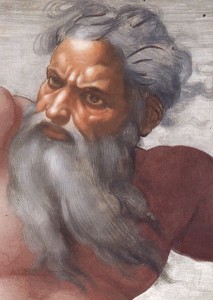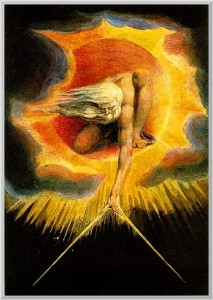 Is God too different from the laws and mechanisms used in scientific explanations to be taken seriously? Is theism suspect because it cites an agent radically unlike any agent we have encountered? After all, it is rather difficult to imagine God; and even if we could, wouldn’t it be impossible to predict what God would create?
Is God too different from the laws and mechanisms used in scientific explanations to be taken seriously? Is theism suspect because it cites an agent radically unlike any agent we have encountered? After all, it is rather difficult to imagine God; and even if we could, wouldn’t it be impossible to predict what God would create?
First note that in science a hypothesis shouldn’t be ruled out just because it is difficult to imagine or doesn’t match our previous experiences – consider the realm posited by quantum mechanics. The key question is whether our observations are rendered less surprising or puzzling by a hypothesis; or whether an explanation gives us deeper insight and understanding into the evidence.
Second, theism appeals to a kind of explanation we are familiar with –agent explanation. And this agent can be given a very simple, clear description: single being who is unlimited in power, knowledge and goodness.The terms used to describe God are pellucid. We know exactly what is meant by God. Of course, it is nigh on impossible to wrap our imaginations around him: but so what? It might be difficult to imagine an infinite series or a shape with trillion sides of equal length. That does not mean that either is meaningless!
 Third, many criticisms of theism seem to rely on an Humean argument which asserts that, (setting the a priori to one side) every meaningful idea is composed of simple ideas ultimately derived from our own impressions. Very roughly, the argument goes: impressions come through the five senses; because God transcends space and time we can’t have a clear idea of God; so the idea of God is unintelligible and cannot do any explanatory work.
Third, many criticisms of theism seem to rely on an Humean argument which asserts that, (setting the a priori to one side) every meaningful idea is composed of simple ideas ultimately derived from our own impressions. Very roughly, the argument goes: impressions come through the five senses; because God transcends space and time we can’t have a clear idea of God; so the idea of God is unintelligible and cannot do any explanatory work.
But we can form all kinds of useful ideas by abstracting from our sense impressions. For example, we can form the idea of an unobservable particle by abstracting from our observations of objects like billiard balls; we can conceive of particles so small the senses cannot detect them. We can then ask if the behaviour of unobservable particles can explain some of our observations.
Similarly we can form the idea of different types of causes. We can consider consciousness in the abstract and ask if it could exist without a body. The causal power of human beings is rather limited; but we can conceive of an agent with no limitations. We can then ask if this agent’s causal power explains some of the features of our universe. Again, the question is not
 Fourth, God would not be entirely unpredictable. God and humans have certain properties in common. Both are rational, both are agents, and -unless we wish to embrace some form of moral scepticism – we should acknowledge that both would recognise similar values. We know from observation and our own direct experience that rational agents bring about complex states of affairs that are ordered for some purpose (eg. machines) or that bring about some value (eg art). Compare God’s reasons for creating a fine-tuned universe with the absence of any reason for a finely tuned universe given atheism. A complex and valuable state of affairs is much, much more likely given theism than chance. The objective beauty of the cosmos, the living world, and conscious embodied agents, all cry out for a theistic explanation.
Fourth, God would not be entirely unpredictable. God and humans have certain properties in common. Both are rational, both are agents, and -unless we wish to embrace some form of moral scepticism – we should acknowledge that both would recognise similar values. We know from observation and our own direct experience that rational agents bring about complex states of affairs that are ordered for some purpose (eg. machines) or that bring about some value (eg art). Compare God’s reasons for creating a fine-tuned universe with the absence of any reason for a finely tuned universe given atheism. A complex and valuable state of affairs is much, much more likely given theism than chance. The objective beauty of the cosmos, the living world, and conscious embodied agents, all cry out for a theistic explanation.
Fifth, the fact that philosophers of religion have debated the problem of evil for centuries surely demonstrates that theism has some predictive power! There are examples of waste and suffering which a good, powerful and knowledgeable creator would not value. Theists acknowledge the problem, and attempt to offer plausible reasons as to why God might permit these states of affairs. But if some evidence does not fit neatly with theism, there is an abundance of evidence which does.
